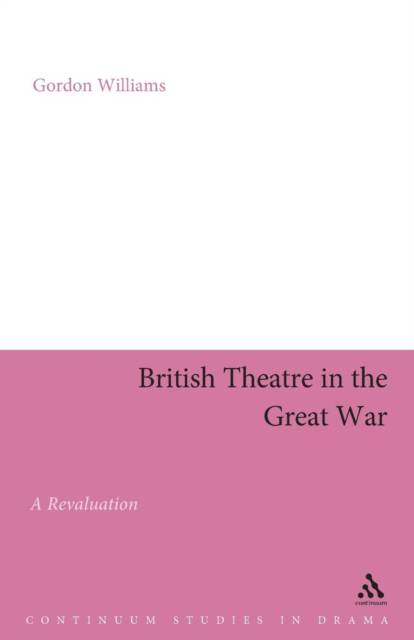
- Afhalen na 1 uur in een winkel met voorraad
- Gratis thuislevering in België vanaf € 30
- Ruim aanbod met 7 miljoen producten
- Afhalen na 1 uur in een winkel met voorraad
- Gratis thuislevering in België vanaf € 30
- Ruim aanbod met 7 miljoen producten
Omschrijving
British Theatre in the Great War deals with a theatrical phase customarily dismissed by those charting twentieth-century developments. What becomes clear is that assessment by unsuitable literary criteria has masked the importance of the war years in British theatrical history. In avoiding a texts bias, the book reveals a period of unsurpassed prosperity in which the stage's substantial contribution to the war effort is only one notable feature. That it also saw the commercial theater's absorption of Continental avant-gardeism by way of revue, the last great epoch of music hall, the rise of the Old Vic with a project in opera and Shakespeare, and the unprecedented popularity of opera everywhere--this was surely the most fruitful period of Thomas Beecham's theatrical career--is compelling argument for revaluation. In his reassessment of this period, Dr. Williams extensively examines scripts and press coverage, providing a comprehensive overview from popular pantomime to the specialist work of the private stage as well as discussion of such issues as working conditions and censorship.
Specificaties
Betrokkenen
- Auteur(s):
- Uitgeverij:
Inhoud
- Aantal bladzijden:
- 360
- Taal:
- Engels
- Reeks:
Eigenschappen
- Productcode (EAN):
- 9780826478825
- Verschijningsdatum:
- 1/10/2003
- Uitvoering:
- Paperback
- Formaat:
- Trade paperback (VS)
- Afmetingen:
- 162 mm x 233 mm
- Gewicht:
- 675 g

Alleen bij Standaard Boekhandel
Beoordelingen
We publiceren alleen reviews die voldoen aan de voorwaarden voor reviews. Bekijk onze voorwaarden voor reviews.







